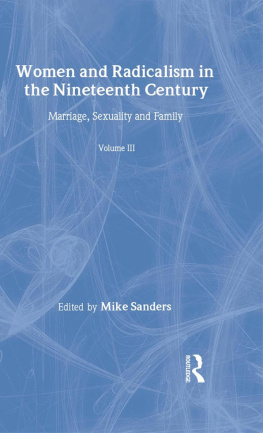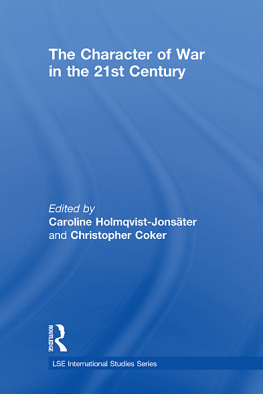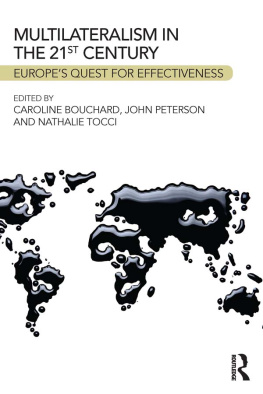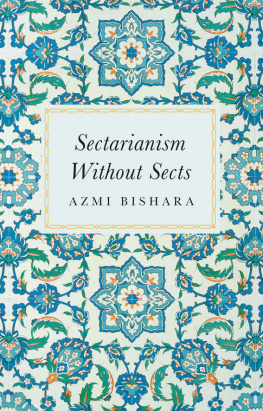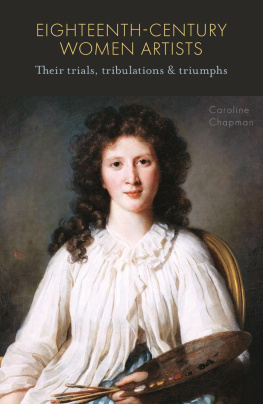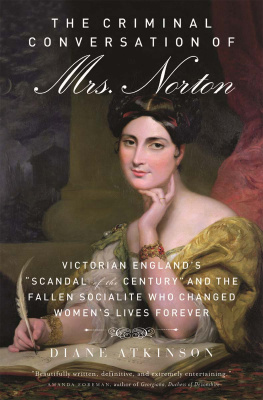By this shall all men know that ye are my disciples if ye
have love one to another. John xiii. 35.
LONDON
WILLIAM PICKERING
1846
Heaven and Hell are not more distant, than the benevolent spirit of the Gospel, and the malignant spirit of party. The most impious wars ever made were calledHoly Wars.
Lyttleton .
Let those ill-invented terms whereby we have been distinguished from each other be swallowed up in that name which will lead us hand in hand to heaventhe name of Christian .
Bishop Ryder .

The following letters grew out of a conversation between one of the editors of the Small Books, and a lady of his acquaintance; and as there are probably many who have felt the want of the information they contain, it has been thought that by publishing them in a collected form they may be useful. The views of the writer are sufficiently explained in the letters themselves. All lament the small sum of Christian charity to be found among religionists in general, but few when they begin to write have kept clear of a severity of comment which but prolongs differences. The writer, himself a member of the Church of England, is anxious to show that it is possible to be attached to one persuasion without imputing either folly or ill intention to others; and it is with a view of promoting the loving fellowship of all whom God disdains not to create and support, that this slight sketch is given to the world.
LETTER I.
Table of Contents
You some time ago requested me to give you the result of my inquiries into the tenets of the different religious sects which I had been acquainted with; and respecting which we had at different times conversed. In the time which has since elapsed I have been endeavouring, both to ascertain them more completely, and to compare them with what I conceive to be the true spirit of Christianity; but the subject has so grown as I proceeded, that even now I can only give you a very short, and I fear, in some cases, an imperfect notion of them. Yet the subject is one of deep interest; and as I feel convinced that if we looked a little closer into the differences between the established church and those who separate from it, both parties would find them smaller and less important than they imagine, and that Christian charity would be increased by the examination, I do not shrink from the task however inadequately I may execute it.
I propose therefore to show you by extracts from the works of the principal writers among the different religious sects, how they all agree in most of the fundamental doctrines of Christianity; at the same time that I point out the evil consequences which I conceive would ensue were some of their tenets fully carried out into practice: and also to state wherein their peculiar opinions appear to me to be opposed to the truth as it is in Christ Jesus, so far as to prevent me from adopting them; though I can fully believe that those who hold these opinions in the abstract, may, notwithstanding, be excellent practical Christians.
Firmly attached as I am to the Church of England, whose form of worship (allowing for the imperfections which naturally cling to all human institutions), I consider preferable to any other; I can still see much to admire in other persuasions and other ceremonies, mixed up, though it be, with some imperfections and error; and my love to the established church does not blind me to some matters which might be better otherwise, and which I shall point out as I proceed.
Of all the Christian graces, says a quaint writer, zeal is the most apt to turn sour; and the observation is no less true than it is sad, for men too seldom remember that they must add to their faith knowledge, and that both are of no avail without the crowning gift of charity,
We are too apt to hold each other accountable for all the consequences which can be logically deduced from an opinion, however extreme they may be: and then having persuaded ourselves that those abstract tenets which, by straining them to an extreme point, may have an evil effect, must have an evil effect on all who profess them,we avoid those who differ from us on religious subjects, because we have assumed that they are actually immoral by virtue of their opinions; and thus we miss the opportunity of convincing ourselves of our mistake by a more intimate knowledge of their lives. By their fruits ye shall know them, says our Lord; but we seldom approach them closely enough to see the fruits.
If we would be content to sink minor differences, and be satisfied that in every nation he that feareth God and worketh righteousness is accepted with him, we should soon meet on better terms; for we do not hold at a distance from those on earth whom we expect to meet in heaven; and thanks be to God, there is no religious persuasion that cannot boast of many such as Cornelius.
St. Paul recommends to the churches that they be kindly affectioned one towards another, in honour preferring one another: and then let us turn to our own hearts and confess with shame that we have fallen miserably short of that charity without which whosoever liveth is counted dead before God.
So clear is the command to exercise universal benevolence, that whatever obscurity there may be in other parts of Scripture, however men, even wise ones, may differ as to the real signification of certain passages in the Bible, here at least there can be no cavilling. It is intelligible to the most ignorant as well as the most learned, so that the wayfaring man, though a fool, shall not err therein.
Archbishop Tillotson relates of Mr. Gouge, an eminent nonconformist, that he allowed men to differ from him in opinions that were very dear to him; and provided men did but fear God and work righteousness, he loved them heartily, how distant soever from him in judgment about things less necessary: in all which, observes the Archbishop, he is very worthy to be a pattern to men of all persuasions. I abhor two principles in religion, says William Penn in a letter to the same archbishop, and pity them that own them. The first is obedience upon authority without conviction; and the other, destroying them that differ from me for Gods sake: such a religion is without judgment, though not without truth. Union is best, if right; if not, charity.
I have given the opinion of these two eminent men of different persuasions, partly to show that the evil I complain of is one of long standing; partly to justify my own opinion as to the remedy; namely, the paying more attention to the fundamental doctrines of Christianity;








